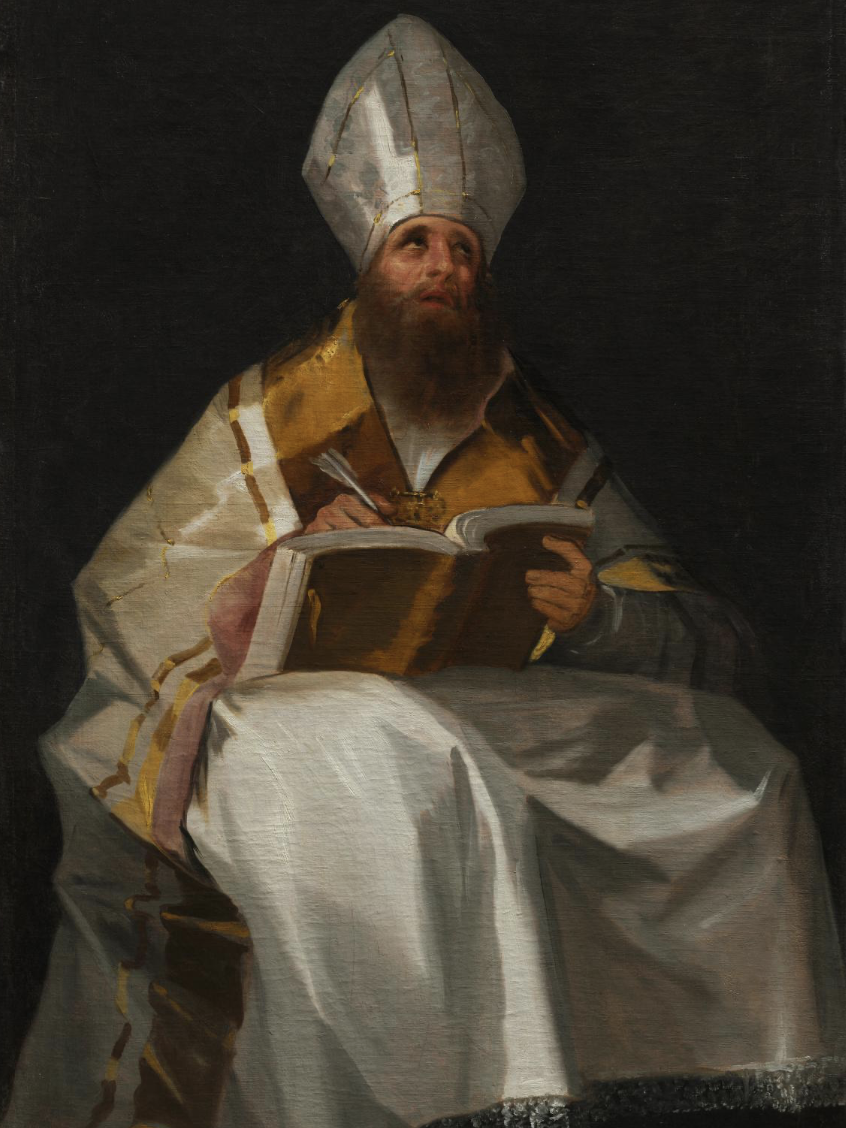
Catholic Saints
Saint Ambrose, born around 340 AD in Trier (modern-day Germany), was a pivotal figure in the 4th-century Church. Elected Bishop of Milan in 374 AD despite being unbaptized at the time, he became renowned for his eloquent preaching, defense of orthodoxy, and influence on Emperor Theodosius I. A Doctor of the Church, Ambrose’s writings—such as De Officiis—and his role in converting Saint Augustine cemented his legacy. He died on April 4, 397 AD, and his feast day is celebrated on December 7.
His feast day is celebrated on December 7.
Doctor of the Church
Born around 340 AD in Trier, Ambrose emerged as a key figure in the late Roman Empire and early Christianity.
Ambrose was born into a prominent Roman Christian family. His father was a praetorian prefect of Gaul, and after his death, Ambrose was educated in Rome, studying law, literature, and rhetoric—skills that later fueled his powerful sermons.
Initially a successful lawyer and governor of Aemilia-Liguria, Ambrose’s life took a dramatic turn in 374 AD when he was unexpectedly chosen as Bishop of Milan by popular acclaim.
Though unbaptized at his election, Ambrose quickly embraced his calling, receiving baptism and ordination within a week.
As Bishop of Milan, Ambrose transformed the see into a bastion of orthodoxy. His preaching drew crowds, including the young Augustine, whom he baptized in 387 AD. Ambrose also stood firm against Arian heresy, defending the Nicene Creed.
He fearlessly confronted emperors, notably forcing Theodosius I to do penance in 390 AD after the massacre at Thessalonica, showcasing the Church’s moral authority over secular power.
Ambrose’s tenure as bishop blended pastoral care with bold leadership, shaping the Church’s role in society.
Ambrose was a fierce opponent of Arianism, a heresy denying Christ’s divinity. He resisted pressure from Empress Justina in 385–386 AD to surrender churches to Arians, rallying his flock to defend orthodoxy. His hymns and writings, like De Fide, bolstered Trinitarian doctrine, earning him recognition as a Doctor of the Church.
Ambrose’s theological rigor preserved the Church’s unity against heretical threats.
Ambrose died on April 4, 397 AD, leaving a rich legacy of writings—De Officiis, De Fide, De Mysteriis—and hymns still sung today. His influence on Augustine and the Western Church endures, celebrated on December 7.
Known as the “Honey-Tongued Doctor” for his eloquence, Ambrose’s life inspires Christians to blend faith with action.
Ambrose’s courage and wisdom continue to resonate across centuries.
“No one heals himself by wounding another.”
Born in Trier (modern-day Germany).
Born into a Roman Christian family, Ambrose studied law and rhetoric in Rome.
Served as governor of Aemilia-Liguria before his election as bishop.
Appointed governor.
Elected Bishop of Milan.
Chosen by popular acclaim, baptized, and ordained within a week.
Baptized Augustine, influencing his theological legacy.
Baptized Augustine.
Died in Milan.
Left a lasting impact as a Doctor of the Church.

“The Emperor is within the Church, not above it.”
Saint Ambrose Quotes
“Prayer is the wing wherewith the soul flies to heaven, and meditation the eye wherewith we see God.”
“No duty is more urgent than that of returning thanks.”
“The Church of the Lord is built upon the rock of the apostles among so many dangers in the world; it therefore remains unmoved.”
“When we speak of wisdom, we are speaking of Christ.”